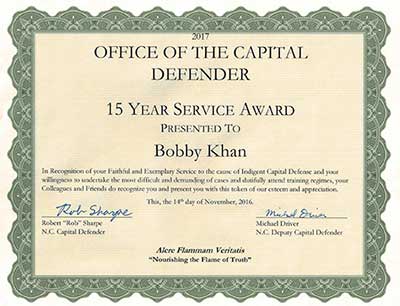Our Family Law Attorney Charlotte NC Discusses Equitable Distribution of Marital Property
The State of North Carolina uses the principle of “equitable distribution” to divide marital property when spouses divorce. In almost every marriage, there will be shared marital property subject to division. A family law attorney Charlotte NC residents trust at The Khan Law Offices can help you be sure that you receive all of the property to which you are entitled. Our attorneys have decades of experience handling divorce cases and facilitating property divisions.

Under the North Carolina General Statutes 50-20 (b) (1), “marital property” includes “all real and personal property acquired by either spouse or both spouses during the course of the marriage and before the date of the separation of the parties, and presently owned.” This definition is subject to certain exceptions.
Your right to a portion of the shared marital property “vests” once you have separated from your spouse. Unlike in many other states, you are not necessarily entitled to fifty percent of the marital property in North Carolina.
Steps and Factors
Several steps have to be taken in order to properly divide marital property; a Monroe NC attorney at The Khan Law Offices can assist with planning for the property division:
Your lawyer and the court will first have to identify all of the property, and then decide if it can be properly classified as marital property rather than separate property.
- The court will place a value on the property. The value will be based on fair market value minus any debts or encumbrances. The spouses receive a portion of the net value.
- The court will then distribute the property to the former spouses. This division may not be equal and the final distribution can depend on many factors:
- The length of the marriage
- The age and health of the parties
- The parties’ financial well-being at the time of the separation
- Contributions made by one spouse to the other spouse’s education or separate property business
- and many others.
Contact a Family Law Attorney Charlotte NC Residents Recognize
As you can imagine, there can be a great amount of disagreement over who gets what, and it is advisable to consult with a Monroe NC divorce attorney. Call the Khan Law Offices today at 704-282-2155 to discuss your case!



